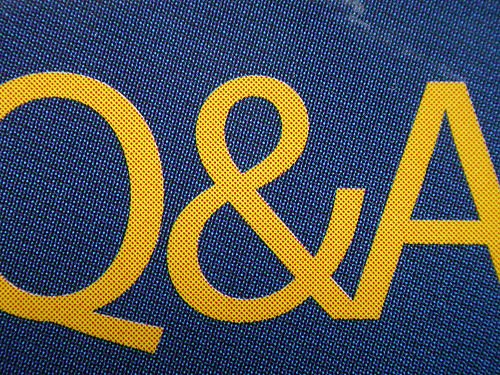
Q: I enjoyed your article on the hazards of perfectionism. With respect to food, I personally find that once I start binging or eating one of the “banned foods” I just keep at it. Because I’ve already “failed” so why not keep messing up? And then I don’t have to deal with the boredom or loneliness I’m feeling. Your thoughts?
A: That’s perfectionism at work. Perfectionism serves as kind of an excuse. “I can’t do it perfectly; so the hell with it.” How convenient! In sacrificing the good to the perfect, you end up with neither. This is particularly true with changing bad habits.
We have to reject this language of addiction. “I’m addicted to overeating.” No, that’s not it. It’s more accurate to say, “I have a bad habit of eating too much.”
Hear the subtle difference?
The first statement implies that you’re helpless, the victim of something called “addiction.” That very term — addiction — is paralyzing. It may serve the interests of addiction counselors and self-help authors, but it doesn’t do anything for you other than stop you dead in your tracks. The second phrase — “I have a bad habit” — is more to the point, more accurate and more empowering. Yes, empowering. That term means: YOU and only you can change the bad habit.
The road to hell is paved with excuses, and the faux desire to do things perfectly is one of the biggest excuses there is.
The number one rule of changing a bad habit is to never look back. Three days breaking the habit, then one bad day where you fall off the wagon? Forget about it. Don’t even dignify it by labeling it. Just move on and get it right next time.
A bad habit is not overcome by perfection. It’s overcome by changing the dominant trend of your behavior. To go from engaging in the bad habit most of the time to dropping the bad habit most of the time IS actually good enough. Eventually, you’ll stop altogether.
Here’s a story I recently heard. A woman who drank too much decided to cut back to one drink a day. She was mostly successful. One day, she got really annoyed when her well-meaning husband poured her just half a glass of wine. “That’s all you get today,” he told her. Then it dawned on her. “What’s the point of drinking at all?” She realized that the habit was futile, and that if she was going to stop it partially, she might as well completely.
This is how bad habits often end: When you realize the futility and absurdity of them.
Bored or lonely? That’s not a pleasant way to feel. But excessive eating (or any other bad habit) will not solve it. Don’t call yourself the “victim of an eating disorder.” Instead, simply say, “I eat too much and I will do something about it. It’s up to me to change my habits.” This isn’t old fashioned or judgmental thinking. It’s simply the truth.
If you’re bored and lonely, find ways to address the boredom and loneliness that DO NOT HURT YOU. I don’t expect it to be easy. But it will be superior to your current course.
It’s all in how you look at it. But you have to look at things honestly and accurately. Otherwise you’re not really looking at something. You’re only imagining.
Our therapy-soaked culture has led people astray, because therapists have been telling people for decades now that they’re the victim of mental diseases outside of their control.
The only solution, it seems, is to talk to a professional who will not change the habit for you, but who will keep reassuring you that you can certainly not change the habit yourself. And how helpful is that?
Obviously, not very. That’s why therapy has started to go by the wayside. Instead, people have turned to medications of questionable effectiveness to ‘treat’ their bad habits and bad moods. And how helpful has that been?
I’m not knocking therapy, nor even medication in every single case. I’m a therapist and life coach myself. But therapy is supposed to mean “change.” More precisely, therapy refers to self-change. A therapist is someone who helps you change yourself.
You don’t go to a therapist to “get help.” You go to a therapist to give voice to your concerns, and to get reasonable and objective answers to your comments and questions.
A therapist is the psychological equivalent of looking into a mirror, and getting an honest and accurate reflection back.
So start talking to yourself in the honest language of truth. Stop the psychobabble. In the words of the late comedian George Carlin, ‘It’s B.S. ‘ and it’s bad for you.’
